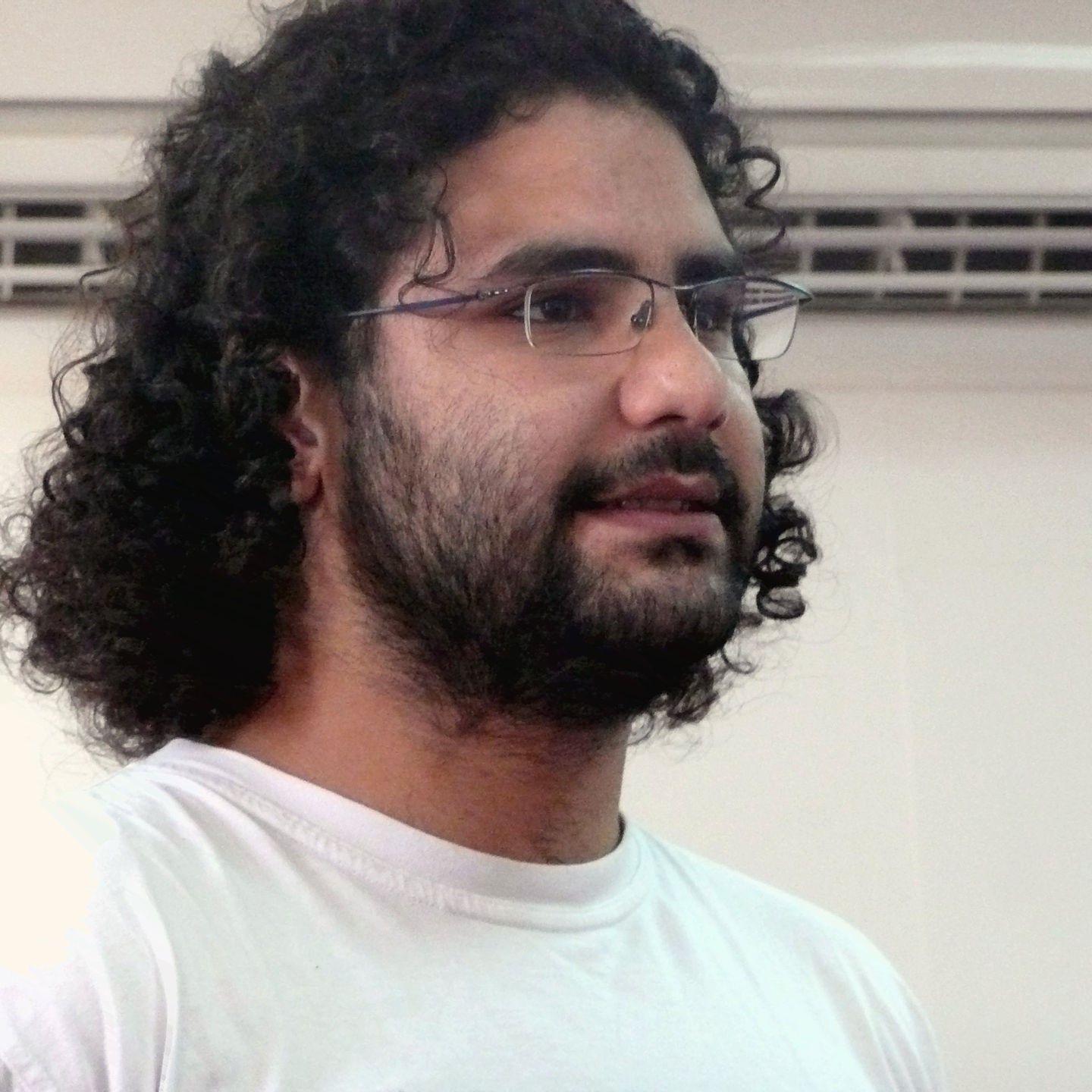Egyptian activist Alaa Abdelfattah arbitrarily detained since 2019
Timeline
December 20, 2021: Abdelfattah is sentenced to five years in prison for “publishing false news” (Case No. 1228/2021).
December 2, 2021: MENA Rights Group requests the WGAD to issue an Opinion on Abdelfattah’s case, arguing that he is subjected to the practice of “rotation” and is therefore detained arbitrarily.
November 18, 2021: The decision regarding the terrorist list is upheld by the Court of Cassation.
October 18, 2021: Abdelfattah is brought to trial before the Emergency State Security Misdemeanour Court in Cairo in Case No. 1228/2021 and formally charged with “publishing false news that harm the country’s interests on their social media pages” (similar charges as Case No. 1356/2019).
September 13, 2021: Abdelfattah informs his lawyer that he is considering suicide in prison due to the dire conditions of his detention and violations of his right to judicial review.
August 18, 2021: Abdelfattah is taken to the SSSP’s office to be interrogated again in relation to Case No. 1356 of 2019. The prosecution presents Facebook posts as evidence.
November 22, 2020: Abdelfattah is added to the terrorist list in Case No. 1781/2019 by the Cairo Criminal Court.
October 23, 2019: UN experts send communication UA EGY 11/2019 to the authorities in relation to Abdelfattah’s detention.
September 30, 2019: Abdelfattah is transferred to Tora Maximum Security Prison.
September 29, 2019: Abdelfattah is re-arrested, facing accusations of “belonging to a terrorist group”, “spreading false news and undermining national security”, “misusing social media”, and “funding a terrorist group” (Case No. 1356/2019).
March 29, 2019: After completing his sentence, he is released from Tora prison.
November 8, 2017: The Court of Cassation upholds the ruling.
April 19, 2016: The UN Working Group on Arbitrary Detention (WGAD) adopts Opinion No. 6/2016 on Abdelfattah’s case, holding that his detention is arbitrary.
February 2015: The Cairo Criminal Court reduces his sentence to five years in prison, followed by a five-year probation term.
June 11, 2014: Abdelfattah is sentenced in absentia to 15 years in prison, for participating in the Shura Protest (Case No. 12058/2013).
March 2014: Abdelfattah is released on bail.
November 28, 2013: Abdelfattah is arrested from his home in relation with the “Shura Council case”.






